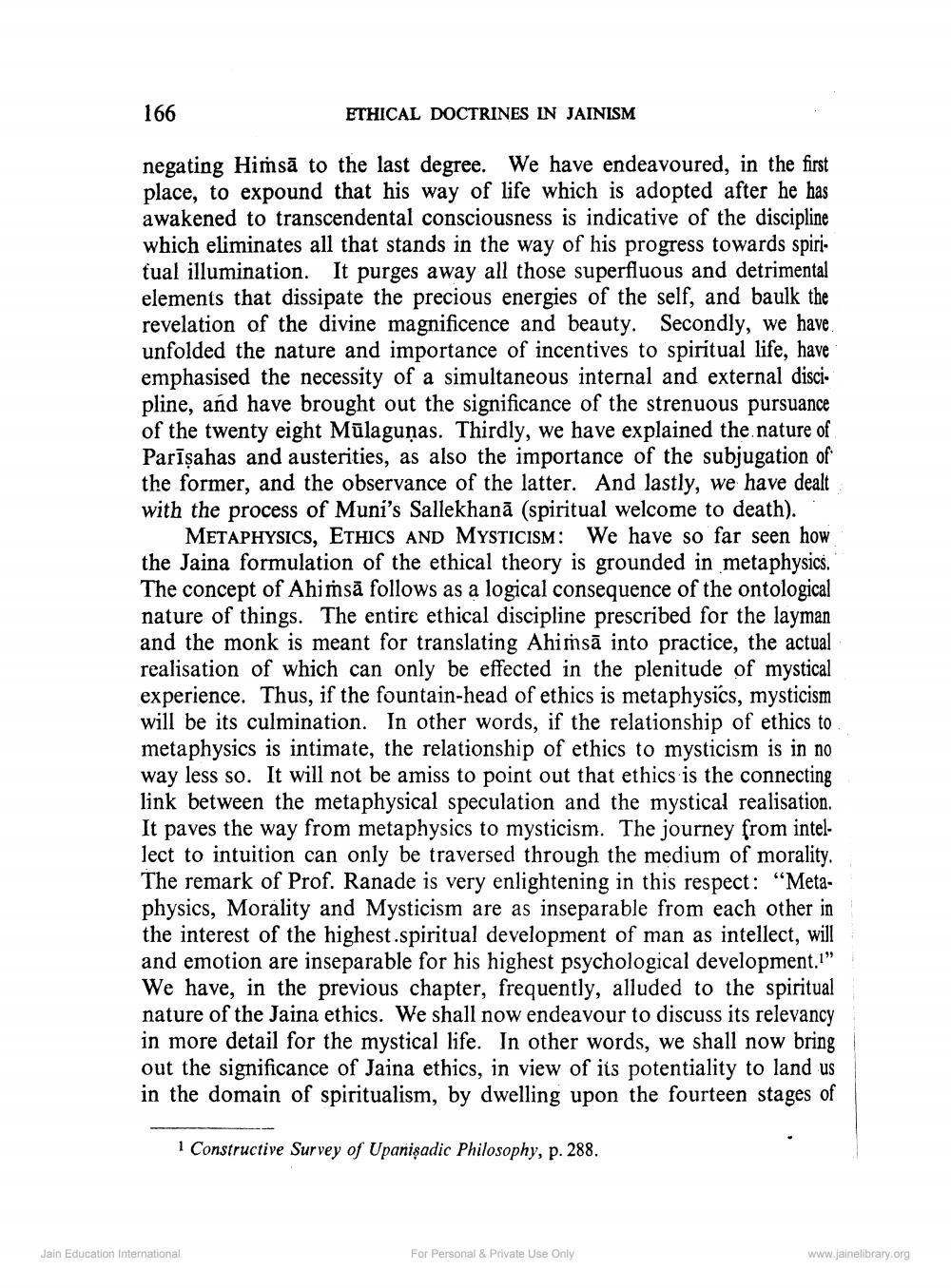________________
166
ETHICAL DOCTRINES IN JAINISM
negating Himsā to the last degree. We have endeavoured, in the first place, to expound that his way of life which is adopted after he has awakened to transcendental consciousness is indicative of the discipline which eliminates all that stands in the way of his progress towards spiritual illumination. It purges away all those superfluous and detrimental elements that dissipate the precious energies of the self, and baulk the revelation of the divine magnificence and beauty. Secondly, we have unfolded the nature and importance of incentives to spiritual life, have emphasised the necessity of a simultaneous internal and external discipline, and have brought out the significance of the strenuous pursuance of the twenty eight Mūlaguņas. Thirdly, we have explained the nature of Parīşahas and austerities, as also the importance of the subjugation of the former, and the observance of the latter. And lastly, we have dealt with the process of Muni's Sallekhanā (spiritual welcome to death).
METAPHYSICS, ETHICS AND MYSTICISM: We have so far seen how the Jaina formulation of the ethical theory is grounded in metaphysics. The concept of Ahimsă follows as a logical consequence of the ontological nature of things. The entire ethical discipline prescribed for the layman and the monk is meant for translating Ahimsā into practice, the actual realisation of which can only be effected in the plenitude of mystical experience. Thus, if the fountain-head of ethics is metaphysics, mysticism will be its culmination. In other words, if the relationship of ethics to metaphysics is intimate, the relationship of ethics to mysticism is in no way less so. It will not be amiss to point out that ethics is the connecting link between the metaphysical speculation and the mystical realisation. It paves the way from metaphysics to mysticism. The journey from intellect to intuition can only be traversed through the medium of morality. The remark of Prof. Ranade is very enlightening in this respect: "Metaphysics, Morality and Mysticism are as inseparable from each other in the interest of the highest spiritual development of man as intellect, will and emotion are inseparable for his highest psychological development." We have, in the previous chapter, frequently, alluded to the spiritual nature of the Jaina ethics. We shall now endeavour to discuss its relevancy in more detail for the mystical life. In other words, we shall now bring out the significance of Jaina ethics, in view of its potentiality to land us in the domain of spiritualism, by dwelling upon the fourteen stages of
1 Constructive Survey of Upanişadic Philosophy, p. 288.
Jain Education International
For Personal & Private Use Only
www.jainelibrary.org




